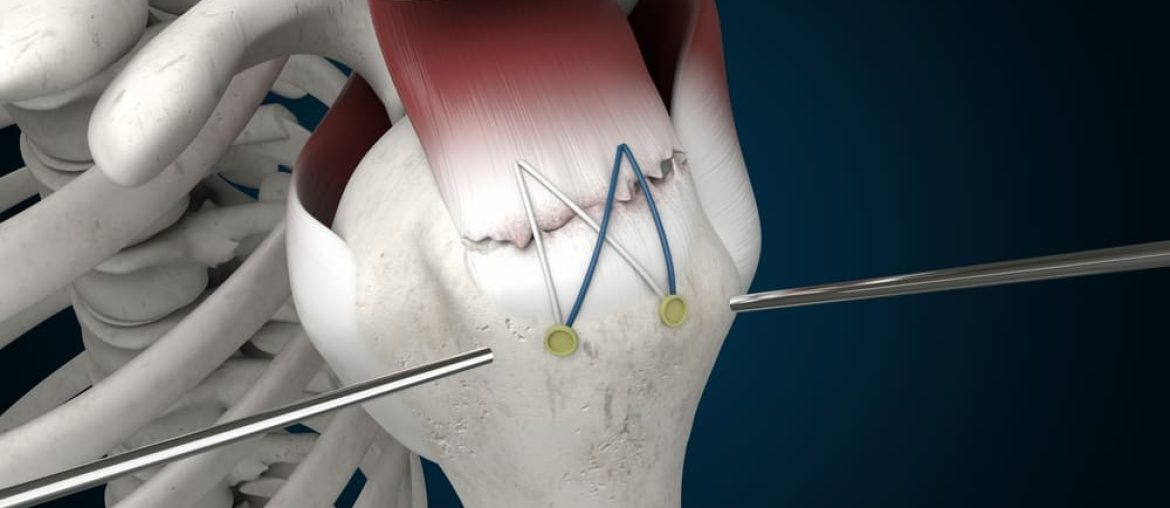Rotator cuff repair is a surgical procedure to treat a torn rotator cuff tendon in the shoulder. This injury is common among people who perform repetitive arm motions, heavy lifting, or those experiencing degenerative wear and tear. If you’re a patient in Nebraska or Iowa considering rotator cuff repair, here’s what to know about the surgery, recovery, and expected outcomes.
Understanding Rotator Cuff Tears
The rotator cuff is a group of muscles and tendons that stabilize the shoulder and allow for smooth, controlled arm movement. A rotator cuff tear can occur from:
- Trauma or Injury: Sudden falls, lifting heavy objects, or accidents.
- Repetitive Overuse: Common in athletes, construction workers, and other professions involving frequent arm use.
- Degenerative Changes: Tendons wear down over time, especially in older adults.
Symptoms of a Rotator Cuff Tear
Signs of a rotator cuff tear include:
- Shoulder Pain: Worsens with movement or at night.
- Weakness in the Arm: Difficulty lifting or rotating the arm.
- Limited Range of Motion: Difficulty performing daily tasks, especially reaching or lifting overhead.
- Popping Sensation: Clicking or popping sounds during movement.
What is Rotator Cuff Repair?
Rotator cuff repair is typically performed using minimally invasive arthroscopic techniques, though open surgery may be necessary for larger tears. The procedure aims to reattach the torn tendon to the shoulder bone, restoring function and alleviating pain.
Types of Rotator Cuff Repair
- Arthroscopic Repair: Performed through small incisions, an arthroscope (camera) guides the surgeon to repair the tendon using specialized instruments.
- Open Repair: A larger incision may be needed for complex or large tears, allowing the surgeon direct access to the tendon.
- Mini-Open Repair: Combines open and arthroscopic methods for larger tears but with a smaller incision than open repair.
Preparing for Rotator Cuff Repair in Nebraska and Iowa
Preparation includes:
- Preoperative Evaluation: Your surgeon will review imaging studies (e.g., MRI) to assess the tear and plan the repair.
- Pre-Surgery Instructions: Follow specific fasting, medication, and transport instructions provided by your surgical team.
- Plan for Recovery: Arrange for assistance with daily tasks and prepare a comfortable recovery space at home.
Postoperative Care and Recovery
Recovery after rotator cuff repair requires a commitment to rest, pain management, and physical therapy. General postoperative guidelines include:
- Immobilization: A sling is usually worn for the first several weeks to protect the repaired tendon.
- Pain Control: Prescription pain medications initially, transitioning to over-the-counter options as pain subsides.
- Physical Therapy: A gradual rehabilitation program is crucial to restore shoulder function. Therapy typically begins with gentle range-of-motion exercises, progressing to strengthening exercises as healing advances.
Recovery Timeline
- Initial Healing (0-6 Weeks): Shoulder immobilization, focusing on pain control and gentle movements.
- Rehabilitation Phase (6-12 Weeks): Physical therapy progresses to include light strengthening exercises.
- Advanced Recovery (3-6 Months): Most patients regain significant function by this stage, although full recovery may take up to a year.
Long-Term Outcomes
Rotator cuff repair can significantly improve shoulder stability, reduce pain, and restore function for daily and recreational activities. Success rates are high, especially with adherence to physical therapy and a proper rehabilitation program.

